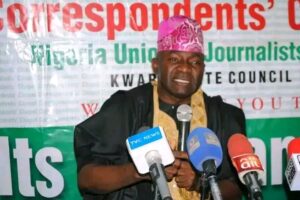
By Folorunso Fatai Adisa
The past few days have been dominated by an intensifying conversation online about who holds traditional supremacy in Yorubaland, between the Alaafin and the Ooni. It is a recurring debate, often driven by sentiment, nostalgia, and regional pride. But beyond emotion, the facts remain clear and must be stated without ambiguity.
First, the legal reality: in contemporary Nigeria, governors play a central role in the appointment of kings. No traditional ruler assumes the throne without formal state recognition. This means that all kings, whether Ooni, Alaafin, Alake, Ataoja, or Olubadan, ultimately operate under the authority of the state governor. That is the position of the law. It is not open to personal interpretation or traditional sentiment.
No paramount ruler is LEGALLY superior to another. While some may enjoy symbolic reverence due to the antiquity of their kingdoms or their cultural prominence, such honour does not translate to political or administrative control over other traditional institutions. Respect is cultural, not constitutional. Recognition is granted by the state, not determined by historic pride.
The Ooni of Ife remains one of the most respected and historically significant royal figures in Yoruba history. But that respect does not empower him to interfere in the affairs of the Osogbo people, whose governance rightly belongs to the Ataoja. Likewise, the Alaafin of Oyo does not control the affairs of Saki, where the Okere reigns. The Alake of Egbaland governs a part of Abeokuta, not Ilaro, that domain is rightly under the Olu of Ilaro. Each of these men is a paramount ruler in his own right, with no legal authority over the others.
The popular idea of ranking kings as first-class, second-class, or third-class was a colonial creation, introduced for bureaucratic convenience. It never reflected indigenous Yoruba governance, which was inherently decentralised and built on the sovereignty of towns and kingdoms. The colonial framework introduced confusion where there was once clarity, and we are still dealing with its distortions today.
Under the current legal structure, no king has official jurisdiction beyond his town or, at most, his local government area. The only traditional ruler with recognised influence beyond his immediate domain is the Sultan of Sokoto, and even that is strictly in relation to Islamic religious matters, not political governance.
Factually, neither the Alaafin nor the Ooni governs another king’s domain. Each ruler operates within a territory defined and recognised by law, and all traditional authorities remain accountable to the same constitutional head within their state, the governor.
It is time to move the discourse from supremacy to mutual respect. The strength of Yoruba heritage lies in its diversity, not in any singular crown. There is no need to create a throne above others where tradition and law have placed none. Both kings should honour one another and work together for the peace and progress of Yorubaland, not waste energy on claims of supremacy.
Folorunso Fatai Adisa, Media and Communication Specialist, writes from the United Kingdom and can be reached at [email protected].








